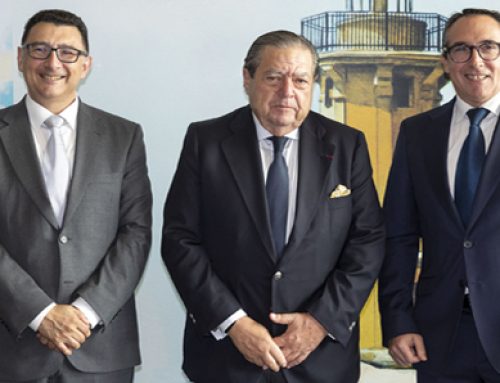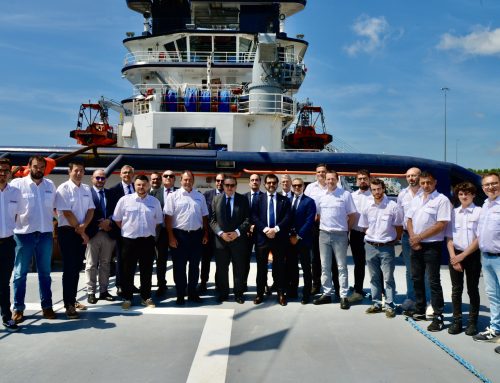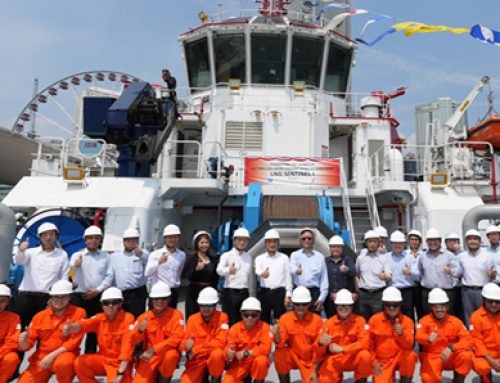Charo Coll, General Manager of Boluda Towage and Salvage division Offshore y Salvamento Marítimo, attended the seminar to maintain the corporation at the forefront of new safety innovations
The general manager of Boluda Corporación Marítima’s offshore and maritime salvage division Charo Coll, and department expert Enrique Gaspar attended the international conference “Maritime and Port Sector 4.0: How New Technologies Pave the Way for Safer Oceans”, held on 22 November, to gain an understanding of new technologies applied to maritime safety.
Charo Coll, president of the International Salvage Union (ISU), an entity that represents the most prestigious salvage companies worldwide, highlighted the importance of attending this type of conference, so that Boluda Towage and Salvage, Boluda Corporación Marítima’s towage division can “continue as pioneers in the new technologies in maritime safety, as befits our position as sector leader in towage”.
This seminar, organized by the Valenciaport Foundation in collaboration with Salvamento Marítimo and Magellan, was held at the facilities of the innovation hub Innsomnia, located on the Poniente dock of Marina de Valencia. Vicente del Río, member of the Valenciaport Foundation, welcomed attendees.
Part of the European Union co-financed project “Preventing Incidents and Accidents for Safer Ships in the Oceans (Picasso)”, the main objective of the seminar was to bring the maritime port community together to discuss the latest technological advances in maritime and port security and protection.
The seminar presented technologies with proven potential in other sectors, such as autonomous vehicles, computer vision techniques, augmented reality and virtual reality.
The event was attended by sector-leading companies and entities such as Wärtsilä, the Swedish Maritime Administration, Transport Malta, and the Spanish Maritime Safety Agency, with representatives also from the maritime port sector, company security and protection in other sectors, and tech companies.
Picasso Project
Funded by the European Commission through the CEF Program, the Picasso Project aims to achieve a modern and developed maritime transport that facilitates a safer, more efficient and more sustainable sector.
This Autopistas del Mar initiative aims to obtain great benefit by studying and testing effective ICT solutions which take the human factor into account.
Picasso is a continuation of the Monalisa 2.0 project in the field of operational safety, focused on technological innovation, the human factor and training. Salvamento Marítimo leads the project in collaboration with Valenciaport Foundation. The consortium is made up of 14 partners from 8 EU countries plus Israel. The project was approved in July 2016 and is scheduled to end in July 2018.
Picasso focuses on three technical areas:
1. On shore/ on board safety and security, led by the Valenciaport Foundation and focused on developing technological tools which improve maritime safety through information exchange between port and ships and remote control vehicles.
2. Emergency simulation, led by the Ministry of Transport of Malta and focused on developing applications for faster and more effective emergency response.
3. Human factor and training, led by the Jovellanos Training Center and focused on training as a key element in preventing maritime accidents and implementing tools to improve response operations. This includes developing specialized courses: “Fight against fires on board ships” and “Management of crisis situations in the port area”. It also includes a pioneering system for automatic search and detection of men overboard or small drifting objects.

Participants in the international Picasso Project conference in Valencia.



